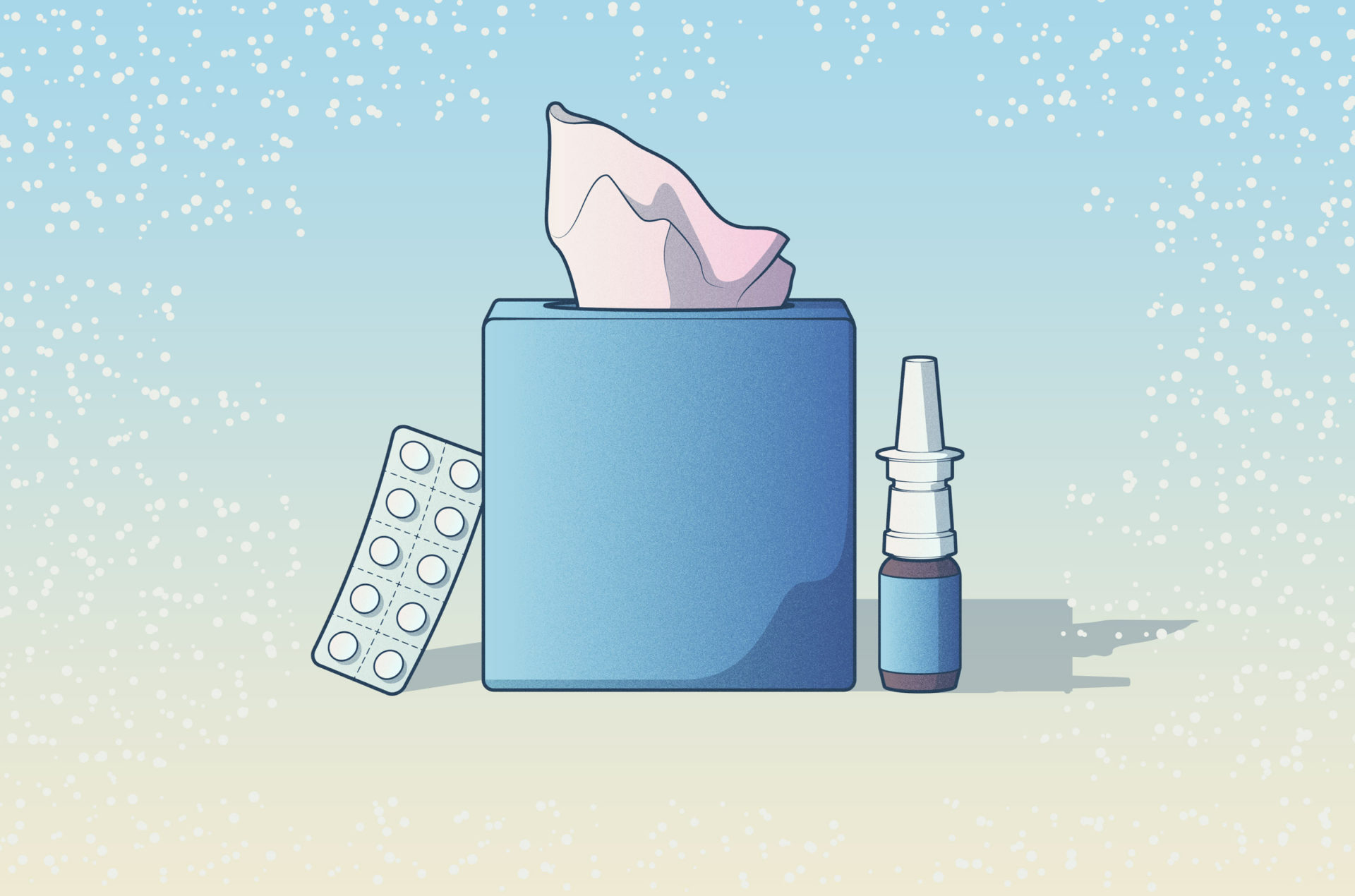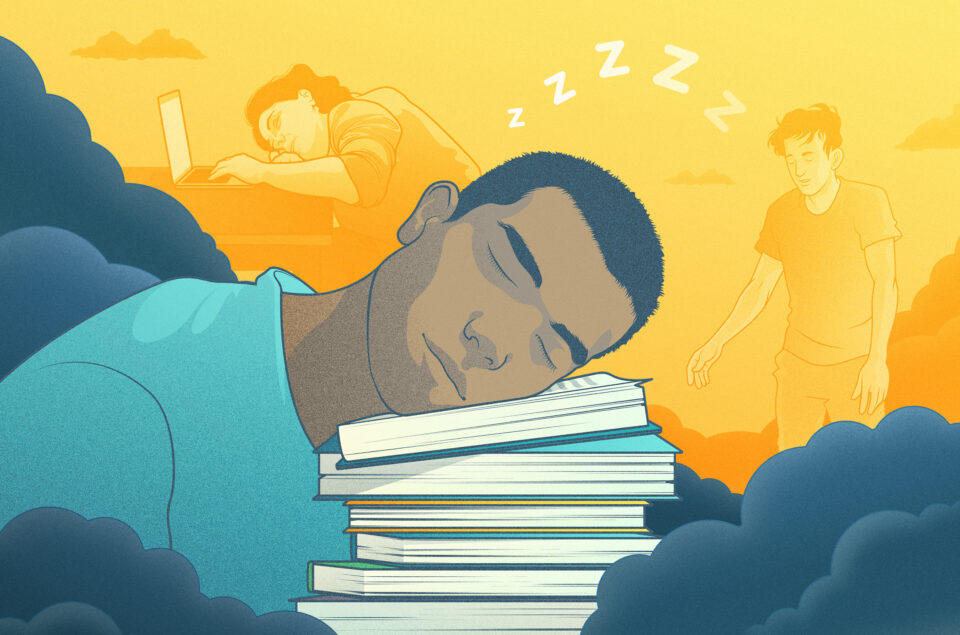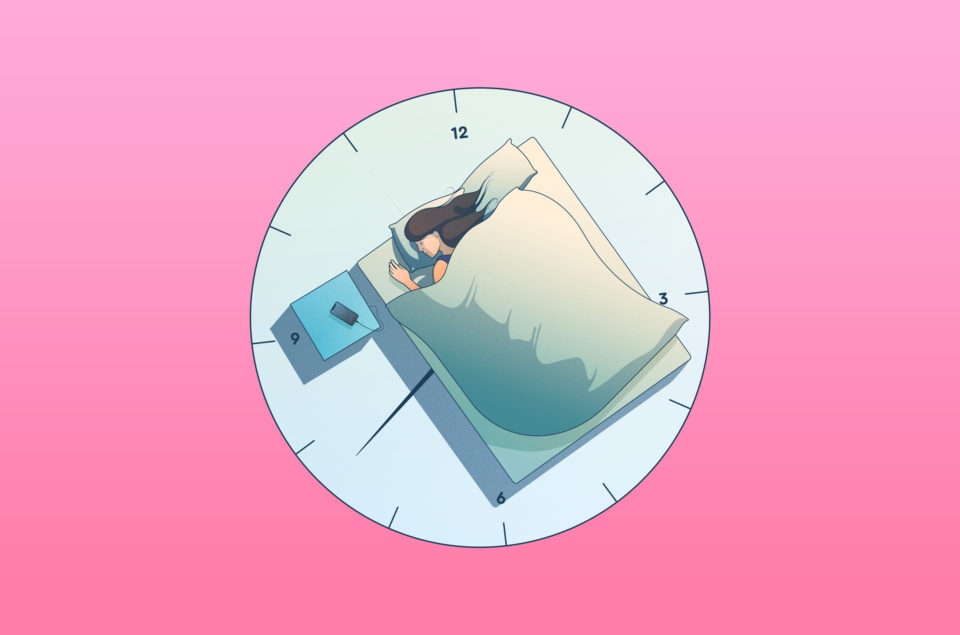For people with allergies, sleeping well and achieving quality sleep can be difficult – especially during spring, with its onslaught of pollen. Those who already suffer from a sleep disorder or sleep related condition are particularly vulnerable.
Keep reading if the fear of opening the windows and worsening your itchy eyes and nose sound familiar. We’ll cover the impact allergies can have on your sleep and walk you through best practices for bedtime whilst coping with allergies.
In this article, we’ll cover:
- What are the allergens that disturb sleep?
- Why do your allergies get worse at night? 3 main reasons
- 8 tips to sleep better with allergies
- The connection between allergies and sleep disorders
The allergens that disturb your sleep
In the U.S. more than 50 million people experience different types of allergies each year, making allergies the 6th leading cause of chronic illness. The allergens that have the most severe impact on sleep are:
- Pollen: Those who suffer from hayfever, often dread springtime, with the increased pollen from trees, grass and weeds. It’s sensible to stay informed on daily pollen counts – on the days where it’s particularly high, avoid staying out for long periods of time.
- Smoke: Both cigarette smoke and smoke from the fireplace circulate allergens around the house. When your allergy symptoms are at its worst, it’s advisable to avoid this altogether.
- Pet dander: Your beloved pets could be the reason you keep sneezing and coughing at night. As flakes of skin carried in their fur coats can carry allergens (pet dander found in their skin and saliva) that irritate and inflame AR. If your pet sleeps in your bedroom, consider creating a cozy space outside your bedroom for them.
- Dust mites: Commonly found in the house, dust mites are microscopic, insect-like pests that thrive in warm and humid environments. Irritation caused in the nose by dust mites is regarded as a dust allergy, but the symptoms can be aggravated at night, as many dust mites are burrowed in mattresses and beddings.
- Mold: It’s important to keep your house well ventilated and check humidity levels in the house as mold loves humidity and damp spaces. Mold spores are a common allergen and can be difficult to remove if left too long, so keeping it at bay with cleaning and wiping damp surfaces increases your chances of avoiding this.
But… why are my allergies worse at night?
There are 3 main reasons allergies may intensify at night:
1. Gravity
Yes. When it comes to allergies that affect you at bedtime, lying down can make your congestion worse. When you lie in your bed, everything in your nose drips down your throat due to the way your nose and throat are structured. The mucus, therefore, just sits there. It doesn’t help the fact that your nasal passages may dry out at night, making them more sensitive to allergens. This can result in increased coughing, wheezing, and breathing difficulties compared to when you’re standing upright.
2. Level of hormones
Our sleep-wake cycle is influenced by a variety of hormones, some of which also play a role in controlling allergic reactions. One possible explanation for why allergies tend to be more severe at night is that specific hormones involved in regulating allergies are at their lowest levels at night and as you progress into deeper stages of sleep.
Moreover, poor sleep also affects our hormones and protection against allergies. A study showed that poor sleep quality contributed to higher odds of experiencing hay fever. Furthermore, participants with insufficient sleep had higher odds of developing allergic sensitization. The findings essentially suggest a positive association between poor sleep leading to allergy-related outcomes.
3. Increased exposure to allergens indoors
As mentioned, pollen levels are higher in the air during the day, but they tend to settle in the evening. However, you may unknowingly bring some pollen inside, which causes you to be exposed to a higher concentration of pollen when you’re indoors at night. Dust mites and pet dander can also accumulate in your bedding, also leading to this increased exposure to allergens.
How to sleep with allergies: 8 recommendations
Scanning your bedroom is a helpful start in addressing your allergy symptoms at nighttime:
- Remove clothing outside of the bedroom – as allergens can collect on your clothes, body and hair, the best way to avoid it following you into the bedroom and disturbing your sleep is to leave it by the door. For example, pollen is found outside your home – keep it there by changing clothes and having a shower as soon as you step inside.
- Pick hypoallergenic bedding, pillows, and mattresses. The materials used are resistant to allergens, such as mold and dust mites.
- Use additional pillows: to avoid the effects of gravity, try propping yourself up with an extra pillow to reduce congestion and post-nasal dripping while you sleep.
- An air purifier will increase the air quality in your home by removing contaminants in the air circulating in the home. Avoiding smoking indoors is also advised, but if this is not possible, then an air purifier should be considered.
- Don’t share the bed with your pet – 62% of all U.S. households have pets. Besides the pet dander, allergic reactions are also caused by the proteins found in pets’ saliva, urine, and feces. To minimize disruption caused by a reaction at nighttime, it would be kinder to yourself to create a space for your pet outside the bedroom.
- Vacuum & clean frequently and change towels to not allow dust or pollen to settle indoors.
- Upholstery – to avoid the dreaded dust mites, keep all upholstery, such as carpets, curtains and sofas, clean and dust-free.
- Nasal sprays and flushing nasal passages can give relief when sleeping at nighttime.
- Keeping windows closed is necessary especially when pollen count is high. During hot seasons installing an air conditioner may give some relief when you can’t keep windows and doors open to let in fresh air.
The connection between allergies and sleep disorders
Allergies can have a significant impact on various aspects of sleep. Some of the difficult outcomes when dealing with allergies at night include:
- Delay of onset of sleep
- Disturbed sleep, with multiple wake-ups.
- Uncomfortable breathing that increases snoring
- Reduced sleep quality
Several studies have shown a link between Allergic Rhinitis (AR) – irritation inside the nose caused by allergens, such as pollen, dust, mold or animals – and sleep. One study found that in up to 88% of children with AR, they displayed sleep problems. Furthermore, patients with AR had less adequate sleep compared with the healthy control group.
- A study with almost 1800 participants looking at sleep conditions for patients with AR and severe AR, found the participants experienced sleep complaints significantly more often than participants with sporadic or mild AR.
- In another study, a group of French researchers estimated the occurrence of sleep disorders in adults being treated for AR, compared to a control group without AR. The results clearly showed that sleep-related grievances were much more common in the patient group with AR, reporting insomnia, difficulty falling asleep, and not getting enough sleep.
This has far-reaching implications during the day, causing daytime sleepiness and perpetuating a vicious cycle of fatigue and sleep deprivation. The risk of developing more serious sleep conditions, such as Obstructive Sleep Apnea (OSA) for people with allergies is therefore higher. In other words, the worse their allergy symptoms, the more severe their sleep issues are likely to be.
Can allergies cause sleep apnea?
This link between allergies and sleep apnea in both adults and children is particularly concerning, as we know that OSA can lead to difficulties in losing weight, high blood pressure, and cardiovascular diseases, among other issues. Although allergies may not cause sleep apnea, this sleep breathing issue seems to be more frequent in people with allergic rhinitis – as their nasal congestion and/or swollen tonsils or adenoids block the air passage from the throat to the lungs.
If someone already suffers from sleep apnea, allergies can also exacerbate the frequency and duration of their sleep apnea episodes. However, incorporating a humidifier into a CPAP machine may help alleviate allergy symptoms, including congestion and dry mouth. Without a humidifier, using a CPAP machine can irritate the nasal passages, as the air entering the body needs to be heated up. By using a humidifier, the air that flows into the nose is pre-warmed, which reduces the stress on the body and makes breathing easier.
Consult a physician if allergies are keeping you up at night. Although difficult to control, allergies should never be allowed to let the occasional bad night’s sleep spiral into a prolonged sleep disorder!
Sleep Cycle provides tailored guidance on how you can improve your sleep. Get started for free.










